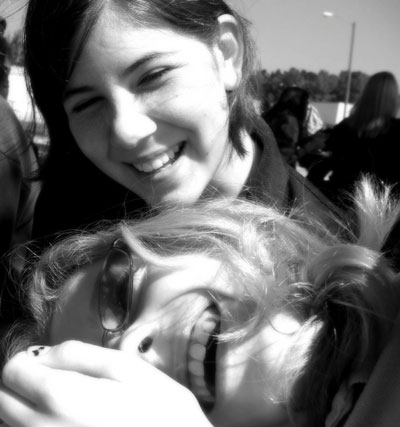All Nonfiction
- Bullying
- Books
- Academic
- Author Interviews
- Celebrity interviews
- College Articles
- College Essays
- Educator of the Year
- Heroes
- Interviews
- Memoir
- Personal Experience
- Sports
- Travel & Culture
All Opinions
- Bullying
- Current Events / Politics
- Discrimination
- Drugs / Alcohol / Smoking
- Entertainment / Celebrities
- Environment
- Love / Relationships
- Movies / Music / TV
- Pop Culture / Trends
- School / College
- Social Issues / Civics
- Spirituality / Religion
- Sports / Hobbies
All Hot Topics
- Bullying
- Community Service
- Environment
- Health
- Letters to the Editor
- Pride & Prejudice
- What Matters
- Back
Summer Guide
- Program Links
- Program Reviews
- Back
College Guide
- College Links
- College Reviews
- College Essays
- College Articles
- Back
Forgiving the Unforgivable MAG
When I was a sophomore, I joined the girls’ tennis team. A freshman who transferred in from Great Britain also joined the tennis team. She sounded so eloquent with her British accent. But my new teammate was quickly targeted by some of our peers, who began mocking her accent. As the snide comments were just within her earshot, she felt anxious, insecure, and alone. Refusing to accept this indefensible behavior, I approached the new girl and introduced myself, complimenting her accent and befriending her in the process. Looking back, this interaction, though somewhat innocuous, stemmed from the deep-seeded guilt that I carried from a past situation. Previously, I was not brave enough to stand up against the status quo and hurt the feelings of an innocent girl.
I met Catherine in the seventh grade. I barely survived my first year in the United States after moving from China, and she was the one person who made me feel accepted and welcome. She greeted me in the hallways at school each morn-
ing with her thick but jovial southern accent, and we quickly became best friends. But, unbeknownst to me, it would be short-lived. I became involved in the drama club at the start of eighth grade, joining my clique. This group’s leader (or “alpha”) was the classic mean girl. She was prim, proper, and utterly vicious, and Catherine, with her stereotypical accent, fit neatly in her crosshairs. I stood by and watched a campaign of cruel mimicking and backstabbing gossip unfold at Catherine’s expense. I combined my misguided desperation to be included with the fear of being excluded for defending her. So, I went along with this social torment. I never made fun of her myself, but I stood by, listening to the jokes yet not doing anything to stop it.
I still saw Catherine from time to time in the remainder of eighth grade. She would still greet and wave at me in the hallways, her enthusiasm not waning, seemingly unaware of my involvement in the clique. Catherine forgave me. However, I could not forgive myself. Deeply immersed in the shame of “betraying” my friend, I could not bear seeing Catherine giving me another chance. I would still respond to her greetings, but I refused to be the first one to talk to her again. My choices permanently destroyed my relationship with Catherine, and even worse, I had to live with myself.
I wish I could go back in time with the courage I needed to defend my friend, but I can’t. I can, however, pledge to never give in to such fear again, regardless of the opinions of others. Of course, we will continually face fear in our lives, especially during times of uncertainty. But this is when we need to dig somewhere deep within ourselves and find the courage to take that risk, to stand up for who we are and what we believe in. To discover our voice and forgive — even if we are forgiving only ourselves.
“I learned that courage wasn’t the absence of fear, but the triumph over it.” – Nelson Mandela

Similar Articles
JOIN THE DISCUSSION
This article has 0 comments.
